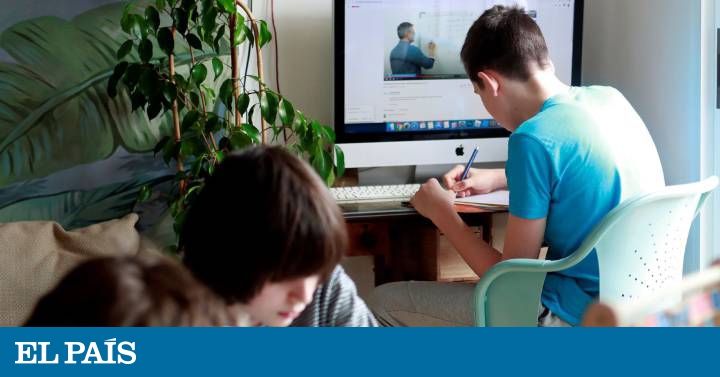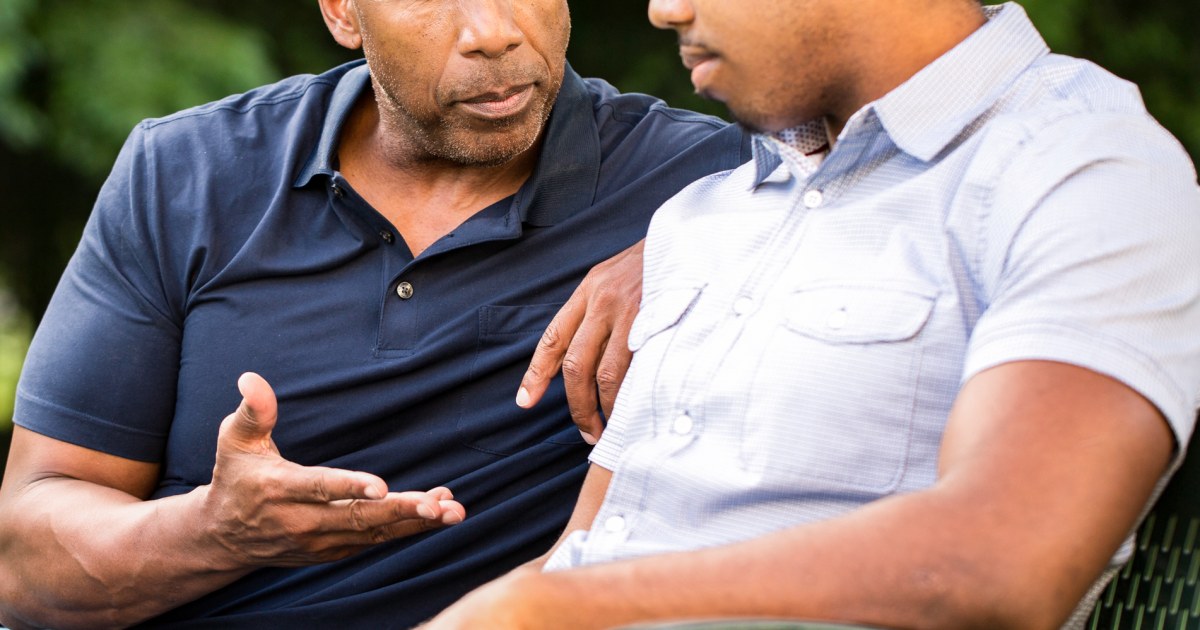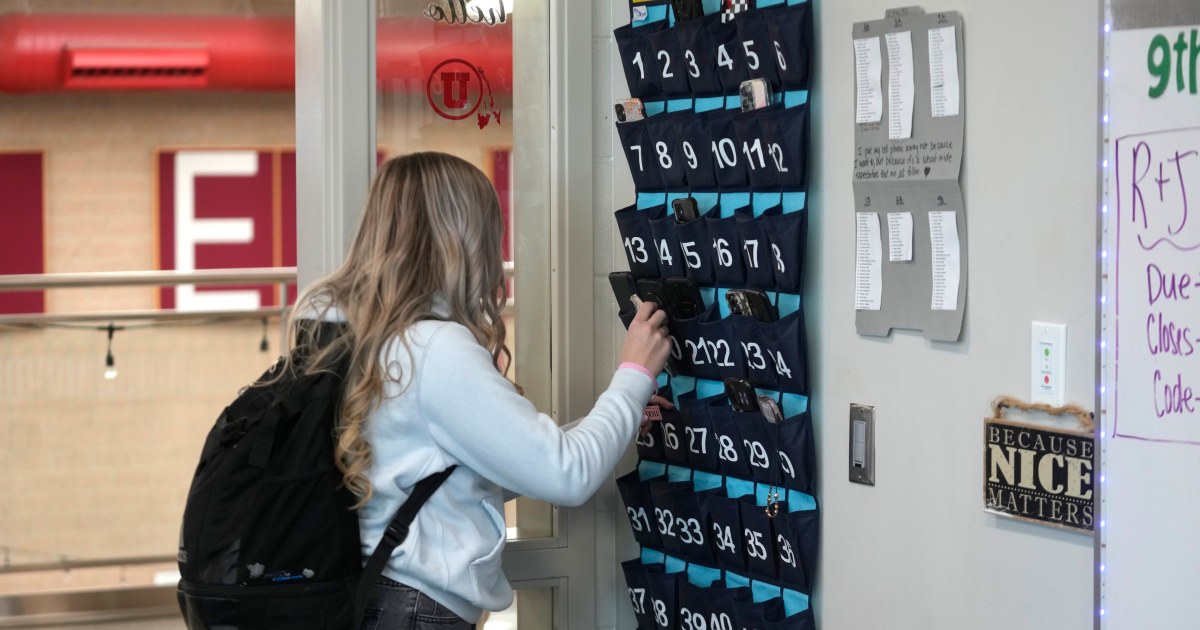MORE INFORMATION
How to motivate your children to study during quarantine- Teachers reinvent themselves: from teacher in a classroom to 'youtuber' in quarantine
After the decree of March 14, the idea of spending 15 days locked up with a teenager was complex, but bearable. Patience had to be mustered to handle the situation without major altercations. And a little more flexibility on our part with the use — and abuse — that they would like to do with technology. It was an acceptable mission. But more than a month has passed since that and the light is not even seen at the end of the tunnel. Parents of young children have a chance of relief starting April 27, but for now, teens may still need to stay home ...
It is not an enviable situation when you consider how hormones flutter around you. Read: changing mood, imperative need for space, uncontrollable laziness, disorder as a way of life ... Despite all this, it is necessary to continue making an effort to cope with a situation that begins to weigh them - and much - of course .
The star tool
Again, experts advise using the most efficient tools in these cases: empathy and patience. It is a long time since confinement and we have probably noticed in them "feelings of sadness, anxiety, irritability and lack of motivation." Félix Notario, pediatrician and member of the Spanish Society for Adolescent Medicine (SEMA) recounted it: “We must understand that this situation is even more complicated in the evolutionary stage in which they find themselves. Adolescence in itself generates anxiety, intense hormonal changes, a transition between childhood and adulthood. If we add to this an uncertain situation, things get complicated ”. Indeed, not knowing how long it will last or what will happen next is even more stressful for them than for adults.
And even more demotivating, an evil against which it is not easy to fight. “We can motivate them with reinforcers, something they want to do with all their might when this situation happens. Talk to them to express their feelings. " But of course, that lack of motivation also carries over to studies. How difficult it is to get them to dedicate time to subjects that they resist without face-to-face classes, without teachers to ask face-to-face, without knowing how they will be evaluated ... In this sense, Notary encourages parents to adopt the role of tutor, helping them to establish a schedule and compliance with the agenda. But always bearing in mind that “continuing to study with the same intensity as during the normative course, in an uncertain and unknown situation, has much merit. Many teens are not prepared for this responsibility. They often have a hard time seeing the long-term consequences. ”
And what about the screens?
Technology is the great workhorse of most parents of boys and girls of this age. It is inevitable that they use it and we know that flexibility must prevail during the closure. But to what extent? For Notary "the limit is in the variety of activities throughout the day." It is clear that friends and social relationships are essential in this evolutionary stage, and now their only way to maintain them is WhatsApp, Instagram, etc. “Not being able to be with your friends or going out to the usual places of leisure, can cause feelings of helplessness and frustration in them. It is necessary to encourage them to maintain the relationship with their friends even if it is at a distance. If one day they are sadder, they may feel the need to talk more with their friends and we must allow it. ”
All this while reducing conflicts in order to have an environment of good coexistence. Notary advocates not to enter into unnecessary discussions with them, “to be understanding and facilitating. If we penalize every action of our adolescent, we will be generating a relationship established in the conflict, with continuous feelings of anger and anger. What will make communication between us difficult and will provoke a climate of family tension ”. That's where the famous age-related disorder comes into play: it's no longer calling your attention for leaving your slippers in the middle of the room. Or for not making bed until night. Or for not keeping the freshly ironed clothes…. Everything is for the coexistence in time of coronavirus. But, as María José Mellado, pediatrician and president of the Spanish Association of Pediatrics, says, "it is time to focus on important things and not wear down our relationship with them."
Yes, they have the right to privacy
Achieving that pleasant environment is going to be much easier if, as requested, often with gestures - yes, those particular faces that only come out so good for them - rather than with words, we give them the physical space they want. and require. “Adolescents do not seek contact with their parents, quite the contrary. They find it difficult to accept the loss of freedom. Therefore, they can feel very overwhelmed locked up 24 hours a day with their parents. They need to have time to do what they want in the privacy of their room without being disturbed. It is part of the process to achieve independence. Respecting the adolescent's intimacy contributes to their physical and emotional development. ” In this sense, something as simple as always knocking on the door before entering your room and not picking up your mobile without permission is key.
It is also recommended that they continue with routines and life habits similar to those they maintained when they went to school or institute. Dr. Mellado comments that "in this stage of almost constant physical and emotional changes and, in these circumstances, it is important to maintain a certain stability in relation to diet, physical activity and sleep." In addition to maintaining personal hygiene, and following the guidelines required by the situation against the virus, that is, wash their hands frequently and keep their mobile devices clean.
If all this seems too little, Notario asks us to “try to maintain an optimistic attitude, since it is related to fewer physical and psychological problems, using humor. Speaking to avoid negative emotions that increase the production of cortisol that damages the immune system "...
Maintaining these guidelines it is possible to get something positive out of this situation: "Get an opportunity to meet, to be interested in their tastes, their hobbies and allow them to teach us what they are passionate about, learning from their world", something that is difficult to achieve with the usual rhythm of parental work and the adolescent's social life. But let's be clear and sincere, applying all these recommendations can help maintain harmony at home, but it does not guarantee it.
You can follow De mamas & de papas on Facebook, Twitter or subscribe here to the Newsletter.









